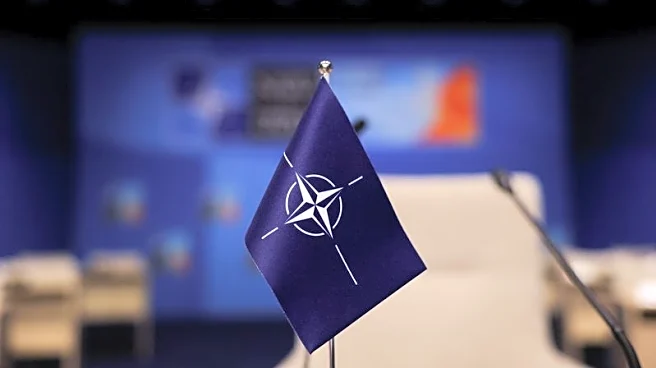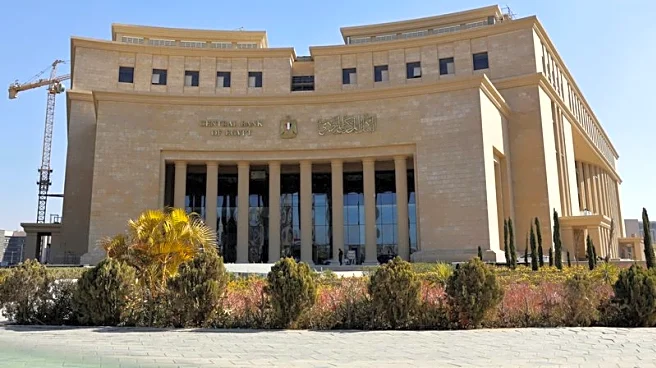Rapid Read • 7 min read
President Trump has signed an order extending the pause on increased tariffs on Chinese goods for another 90 days, pushing the deadline to November 10. This decision stabilizes trade relations between the U.S. and China, preventing a tariff hike that was set to take effect. The extension follows a preliminary agreement reached in Sweden, where both countries agreed to reduce tit-for-tat tariff hikes and ease export restrictions on rare earth magnets and certain technologies. The move aims to prevent a renewed tariff war that could disrupt trade and impact global financial markets. The extension allows more time for discussions on unresolved issues, including duties related to fentanyl trafficking and U.S. business operations in China.
AD
The extension of the trade truce is crucial for maintaining stability in U.S.-China trade relations, which have significant implications for global economic dynamics. By averting a tariff hike, the U.S. and China can continue negotiations on key issues, potentially leading to improved trade terms and reduced economic tensions. The decision reflects the strategic importance of U.S.-China relations, where economic and national security concerns are closely linked. The extension provides a temporary reprieve for businesses and markets, allowing stakeholders to plan for medium- and long-term strategies. However, the ongoing trade disputes underscore the challenges of achieving a comprehensive agreement that addresses all concerns, including intellectual property rights and industrial policies.
The extension sets the stage for continued diplomatic engagement between the U.S. and China, with the possibility of President Trump visiting China to meet with President Xi Jinping. Negotiations are expected to focus on unresolved issues, including trade reciprocity and national security concerns. The outcome of these discussions could influence future trade policies and impact global economic stability. Stakeholders, including businesses and policymakers, will closely monitor developments to assess the potential for a lasting resolution to trade tensions.
AD
More Stories You Might Enjoy












